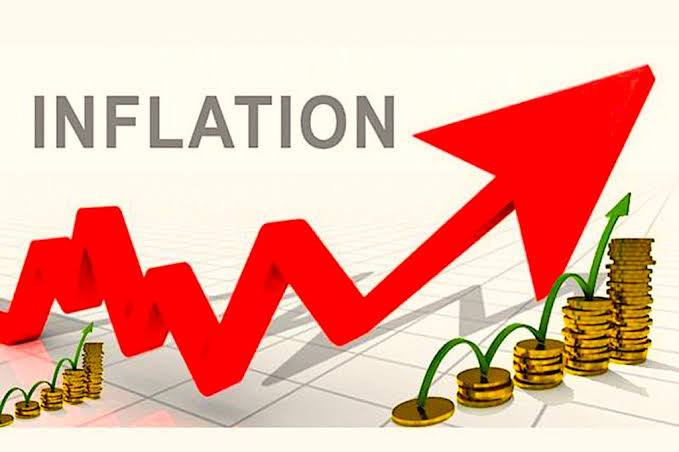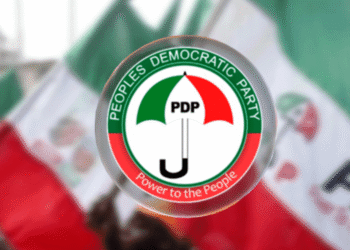By Vincent Amadi
Poverty and staggering debt remain the albatross on the shoulders of the federal government, 36 States and the Federal Capital Territory (FCT), and the 774 Local Government Areas, in spite of sharing a whopping N17.9 trillion as the cumulative Federal Account Allocation Committee (FAAC) revenue under President Bola Tinubu.
The figure, which is the most elevated by the Nigerian government in history, speaks to a 42.6 percent surge when compared to the N12.56 trillion it was a year prior.
The increase sprang from the removal of the petrol subsidy which freed more funds for month-to-month FAAC payouts.
The disclosure came from a recent FAAC report released by the National Bureau of Statistics (NBS).
Notwithstanding the higher monthly subvention, a report from the World Bank shows that Nigeria’s poverty rate rose from 40 percent in 2018 to 46 percent in December 2023. It implies that the number of poor individuals expanded from 79 million to 104 million.
According to the report, more individuals have fallen below the poverty line due to sluggish economic development and rising persistent inflation.

“Sluggish growth and rising expansion have expanded the poverty rate from 40 percent in 2018 to 46 percent in 2023, pushing an extra 24 million individuals underneath the national poverty line,” the World Bank said.
The report included that the number of poor individuals in urban areas (more exposed to inflation) expanded from 13 million to 20 million, whereas the number of poor individuals in country zones rose to 84 million from 67 million during the same period.
The most exceedingly bad five states in poverty headcount rate for 2019, according to Statista are; Sokoto, 87.73%, Taraba, 87.72%, Jigawa, 97.02%, Ebonyi, 79.76% and Adamawa, 75.41%. The least five states are; Lagos, 4.5%, Delta, 6%, Osun 8.5%, Ogun 9.3% and Oyo, 9.8%
Analysts say the figures have not moved forward since the variables dependable for the compounding poverty, like terrorism, climate change crisis, lack of cultivate input, inflation, and others, are however to abate.
The World Bank, however, anticipated a silver lining, clarifying that the increment in destitution rate will be fixed by the later changes of President Bola Tinubu from 2024 forward, reversing the rise to 44 percent in 2026.
Figures from the Debt Management Office (DMO) show that Nigeria’s total public debt stock as of December 31, 2023, was N97. 34 trillion or $108.229 billion.
Sub-national domestic debt stood at N5.863 trillion, whereas external debt stock was $4.61 billion.
Topping the debtor list is Lagos State, Nigeria’s commercial center, which had an external debt of $1.24 billion in 2023. In any case, this figure is marginally less than the $1.25 billion in 2022. The slight decay is likely due to a dependence on more domestic debt, which is around N1.05 trillion. Taking after closely is Kaduna State, which has an outside obligation of $587.07 million in 2023, climbing from $573.74 million within the past year. Too exposed to offshore lenders is Edo State with external debt bouncing to $314.45 million in 2023 from $261.15 million in 2022.
An investigation by the Whistler shows that Delta, Waterways, Akwa-Ibom, Bayelsa, Lagos, and Kano states got the most noteworthy FAAC allocation under Tinubu.
On the flip side, Gombe, Ekiti, Ogun, and Cross-River States for the least.
In spite of the fatter month-to-month FAAC salary, there are veritable concerns as 15 Nigerian states have however to implement the N30,000 least wage for their laborers since it was marked into law in 2019.
Considering the humongous stores accessible to states, the organized work is demanding a month-to-month least wage of almost N600,000 as millions of Nigerians fight multi-dimensional destitution.
According to BudgiT, though 15 states are however to implement the least wage of N30,000, the 36 states of the alliance developed their total staff cost by 13.44 percent to N1.75 trillion in 2022 from N1.54 trillion in 2021.
Moreover, these states developed their overhead bills by 23.42 percent to N1.24 trillion in 2022.
Under the current administration Delta, Rivers, Akwa-Ibom, Bayelsa, Lagos, and Kano states got the most elevated FAAC revenue during the period.

In any case, at the conclusion of the 10 months of February 2023 beneath previous President Buhari, Delta, Akwa-Ibom, Waterways, Bayelsa, Lagos, and Kano states got the most elevated income.
Further breakdown appeared that Delta state in spite of being the state with the foremost assignment in both periods, saw a decay of 3.77 percent to N326.64 billion as against N339.44 billion it got beneath Buhari.
Rivers State, which received the highest allocation from the FAAC under the Tinubu administration, experienced a slight decrease of 0.88% in its allocation compared to the Buhari era. The state’s allocation now stands at N261.48 billion, down from N263.79 billion under Buhari.
Experts have pushed for a more frugal administration of resources across the three tiers of government so that the picks up of good administration can cascade down to all nooks and corners of society.
The Director General of, the Centre for the Promotion of Private Enterprise (CPPE) Dr. Muda Yusuf, said it was disheartening that advancement at the sub-national level has remained horrifying, calling on governors to see past the state capital to develop the rural areas where the bulk of the citizens dwell.
He said:
“It’s not pleasant that poverty has continued to ravage the citizens in spite of higher FAAC distributions.
“The extra income ought to be went through on ventures that emphatically affect the lives of the individuals.
“It’s not around governors building flyovers at state capitals and dismissing numerous parts of their states.
“Look at what your citizens are predominantly engaged in. Are they farmers, fishermen, traders, and so on? You invest in what they do so you make the state more inclusive, not just building airplane terminals, flyovers, etc.
“Corruption could be a major issue really. The more cash accessible, the more the debasement component of it.
“People should be made accountable. A system carrying too many parasites cannot grow.
The citizens ought to request responsibility and not fair regret and go to bed after voting”, he said.




































